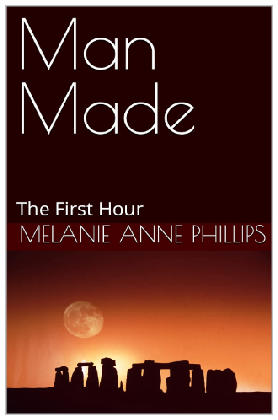Read the Science Fiction Thriller
From the founder of Storymind
Man Made follows a mysterious force as it sweeps around the globe erasing anything man made - from buildings, vehicles, and technology to medicines, clothing, and dental work.
Governments stagger under the panic, religions are at a loss for an explanation, scientists strive for any means to stop or divert the phenomenon, and the world’s population from families to individuals struggle to prepare for The Event, which will drive humanity back beyond the stone age.
The Event is coming.
Are you prepared?
~ Step 62 ~
Genre and Plot
Because genre permeates all aspects of a novel, it is best appreciated in combination with your plot, characters and theme.
Accordingly, this first section of Genre Development focuses on genre and plot. Plot is about the progression of events in your story. So, elements of genre that are about events like a car chase, a series of murders, or a first kiss are also a part of your plot as well.
In this step, the task is to incorporate into your plot as many of the genre elements you have previously selected in an earlier step.
Look through your list of genre elements. Consider which ones might have an impact the events and progression of your plot. Then, write a short description of the plot impact of each of those elements.
Limit yourself to plot only for this step. Character and Theme will be explored in the screens that follow.
Example: Suppose you are writing a Western and that one of your genre elements is brawl in the saloon. And, suppose your story synopsis calls for an argument between the Main Character ( a cowboy) and his sister (a bar maid at the saloon). Even though your story synopsis did not call for a brawl, you can work that element into your plot by having the argument between the cowboy and his sister escalate into a knock-down, drag-out fight involving everyone in the saloon.
By "trying out" each genre element against the existing events of your synopsis, you may find all kinds of interesting juxtapositions that greatly enhance the interest-value of your story, even though you did not original intend such a turn of events.
There is no fixed number of genre elements that are required to be worked into a novel, but they are like spices in a meal – too few and it is bland, too many an it is obnoxious, just the right mix and it is a gourmet dish.
So, pepper your plot liberally with genre to spice it up, but don’t overpower it.
~ Step 63 ~
Genre and Characters
Elements of genre may affect character relationships (as in a Comedy of Errors), attitudes (as in a Comedy of Manners), dialogue (in an Historical Drama), and much more.
Referring to your existing story synopsis and your list of genre elements, describe how specific genre elements affect your characters.
Limit yourself to characters only for this step. Theme will be explored in the step that follows.
~ Step 64 ~
Genre and Theme
Elements of genre may affect subject matter (as in a Spy Thriller), message (such as blind devotion to duty), counterpoint (questioning orders from a superior), and much more.
Referring to your existing story synopsis and your list of genre elements, describe as many specific instances as you can for every genre element that might affect your theme.
~ Step 65 ~
Revised Synopsis
Revise your existing story synopsis to incorporate the material you have just developed for your genre elements and their integration into your plot, characters, and theme.
